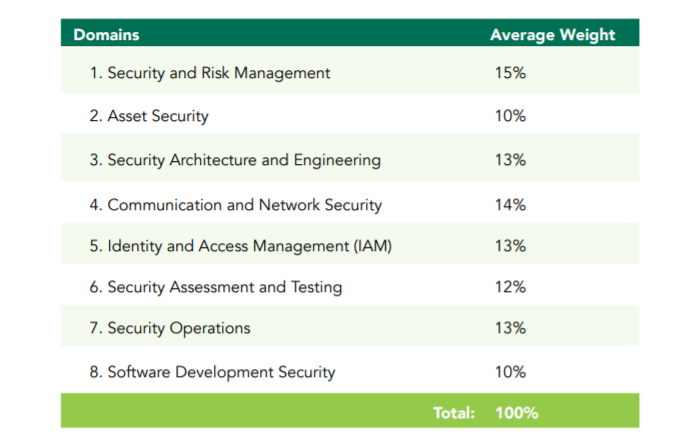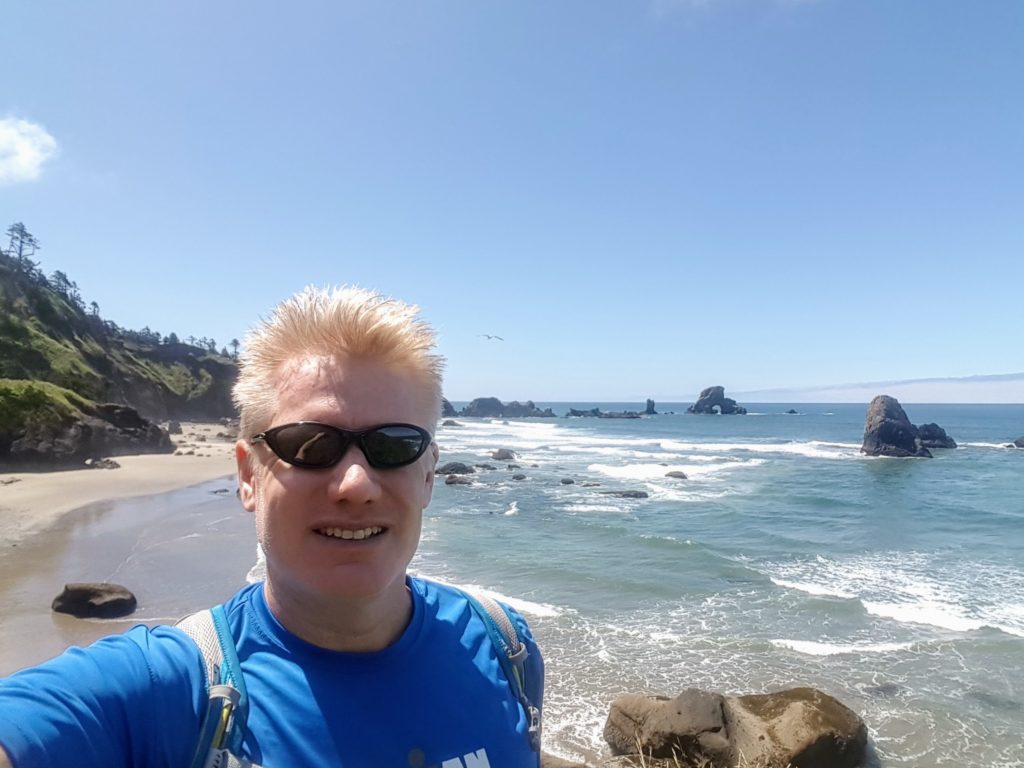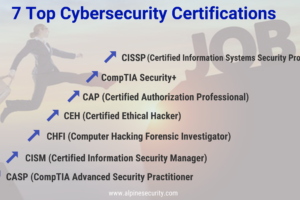Follow these 9 tips and your chances of passing the CISSP Exam will greatly increase.
1. Know Your Why
Why are you taking the CISSP certification exam? Is it for a better job, more respect, so you can support your family better? Knowing the reasons why will give you something to fall back on when you are struggling with the content, don’t feel like studying, etc.
2. Remove Limiting Beliefs
What are your limiting beliefs about the CISSP exam? You need to believe you can pass the exam. Write down any limiting beliefs or fears and how you will overcome them.
Example:
-
Limiting Belief 1: I’m not a good test taker.
-
I Will Overcome Limiting Belief 1 by: I will do as many practice tests as I can get my hands-on. I will watch one YouTube video a day on test taking skills and strategies. I will execute my preparation plan.
3. Keep the Big Picture in Mind
The big picture with the CISSP exam is for you to pass the exam. Preparing for the CISSP will give you surface-level knowledge on a lot of topics, but it will not make you an expert. Only learn the topics as deep as you need to in order to pass the exam. You can always learn them in more detail when you actually have a requirement.
4. Have a Strategy/Plan
Register immediately to put the CISSP exam on the calendar. Having it on the calendar makes it real. Work backward from your scheduled test date and determine what you need to do each month, week, day, and hour.
Example:
-
CISSP exam is scheduled 4 months out
-
Month 1 Objectives: Study Domains 1-3 and take practice questions on Domains 1-3.
-
Month 1 Week 1 Objectives: Take a practice exam over Domain 1 to establish a baseline. Read the Table of Contents for Domain 1 in the CISSP All-in-One Book. Research topics areas I totally botched on the practice test. Watch YouTube videos on several of the topics in Domain 1.
-
Week 1 Day 1 Objectives: Take practice exam over Domain 1. Look up all the answers I got wrong.
-
Week 1 Day 1 Hours 1-2: Take a practice exam.
-
Week 1 Day 1 Hours 2-3: Practice exam review.
5. Consider a CISSP Boot Camp
You don’t need to take a CISSP Boot Camp or CISSP training in order to pass the exam. It might be a good idea though to add this to your strategy. Many people that pass the exam have a strategy where they study for a couple of months, take a CISSP boot camp as a refresher, then take the exam. It’s up to you.
6. Take Many CISSP Practice Tests
Spend 50% of your time taking CISSP practice exams. The best way to prepare for a test is to practice. Look up the answers you get wrong. Studying the material is not enough. You need to understand how questions are asked, how to eliminate answers, how to pick the “best” answer, how to manage your time during a test, etc.
7. Know When You’re Ready
If you’ve followed your strategy, you should be ready for the CISSP exam, but the best measurement to determine if you are ready is how you are scoring on practice exams. If you consistently score over 90% on practice exams that cover all 8 domains, you should be ready for the exam. If you are averaging less than 90%, you may be able to pass the real CISSP exam, but your chances are less.
8. Take the Exam
When you’re ready, take the exam. A few tips:
- Get a good night’s sleep
- Don’t overdo the caffeine
- If you function better in the AM, schedule the exam for the AM. If you function better in the afternoon, schedule the exam in the afternoon.
- Arrive early at the testing center. You don’t want to get road rage on the way there. If you get stuck in traffic, have notes ready to review. If you arrive way early, read over your notes.
- Visualize your success – see yourself passing the exam.
9. Results
If you pass the exam, celebrate and move on to better things. If you do not pass the exam, sign up again as soon as you can. Do not give up. Remember your why. You’ve come too far to quit.
Conclusion
Best of luck on your journey to get CISSP certified. The CISSP certification is the outcome you seek, but remember to take some time to enjoy the journey along the way. It’s not the CISSP certification that matters most, but the pursuit that makes you better tomorrow than today.
AUTHOR BIO
Christian Espinosa is Alpine Security’s CEO/Founder and a Cybersecurity Professor at Maryville University. He holds over 25 certifications, including the CISSP, CCISO, and PMP. Christian is a US Air Force veteran with a BS in Engineering from the US Air Force Academy and MBA from Webster University. Christian holds multiple patents on cybersecurity attack and defense. Major recent projects include penetration testing and assessments of commercial aircraft, medical device penetration testing, and numerous incident response projects. When Christian isn’t protecting us from cybercriminals, he climbs mountains, travels the world, teaches outdoor wilderness survival, and competes in Ironman triathlons.







